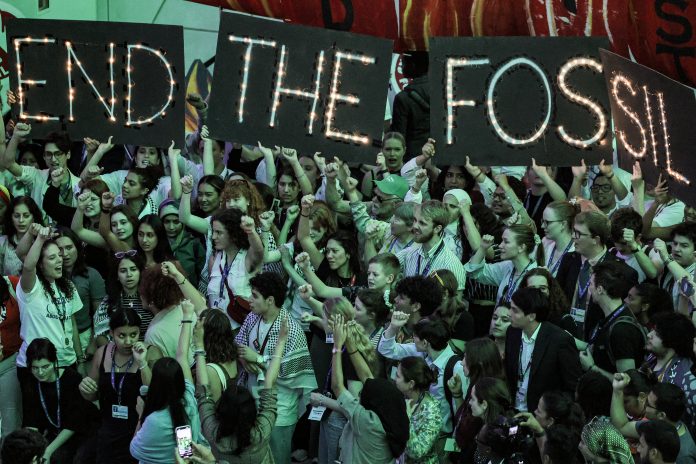Filipino climate activists at the 28th Conference of Parties (COP28) in Dubai challenged the Philippine government to serve as the voice of the people against fossil fuel expansion.
In an online press briefing on December 11, the activists expressed disappointment over the “weak position” of the country’s official delegation at the climate summit.
“The voice of the Philippine delegation used to be instrumental in the previous COPs… Now that we are talking about fossil fuel phaseout in COP28, we cannot feel and hear the Philippines,” Krishna Ariola of the Youth for Climate Hope lamented.
Rodne Galicha of Living Laudato Si Philippines shared that the “voice of the Philippines 10 years ago led to the adoption of the Warsaw International Mechanism on Loss and Damage”.
He expressed optimism that the country “can be the voice in the climate negotiations again to advance the call for the phaseout of fossil fuels”.
The Philippines is actively pursuing a position on the inaugural board of the fund, tasked with overseeing and governing the mechanism.
Environment Secretary Maria Yulo-Loyzaga, who leads the Philippine delegation at the climate talks, stressed that the country is a “living testament to the impacts of climate change,” which she said makes the Philippines highly qualified to host the board of the loss and damage fund.
Galicha welcomed the Philippines’ bid to host the Loss and Damage Fund Board but warned that it requires “robust inclusive climate governance”.
He said that there is “a bigger challenge back home to strengthen climate governance and inclusivity through a whole-of-society approach”.
In advocating for the Philippines’ bid to host the loss and damage fund, Yulo-Loyzaga assured that the country would champion the voices and experiences of climate-vulnerable nations, ensuring they are acknowledged and taken into account.
Bishop Gerardo Alminaza, vice president of Caritas Philippines, vowed to continue to engage the Philippine government “to advance the cause of the vulnerable communities and the rest of the Filipinos”.
“We should be reminded that the civil society and the Philippine government are on the same side. We are not enemies and we should continue to advance the cause of the vulnerable communities,” said the prelate.









